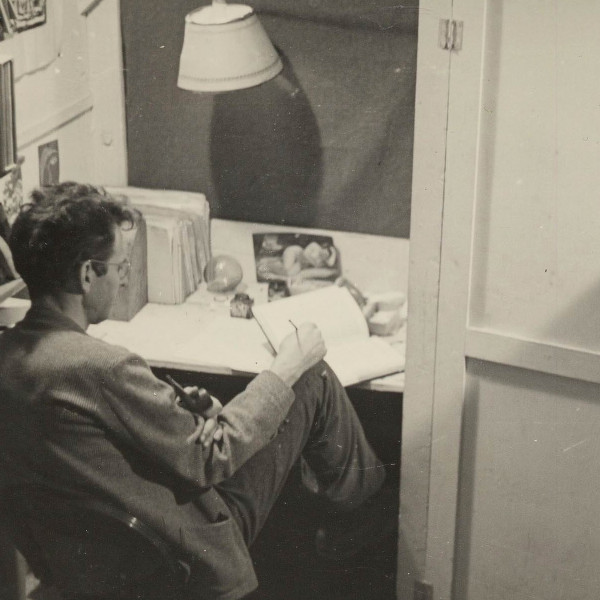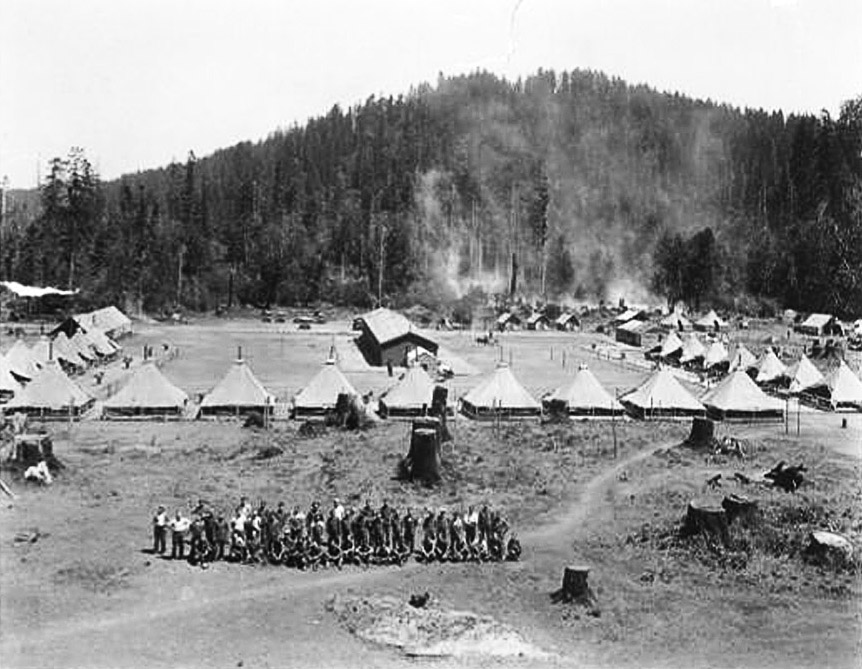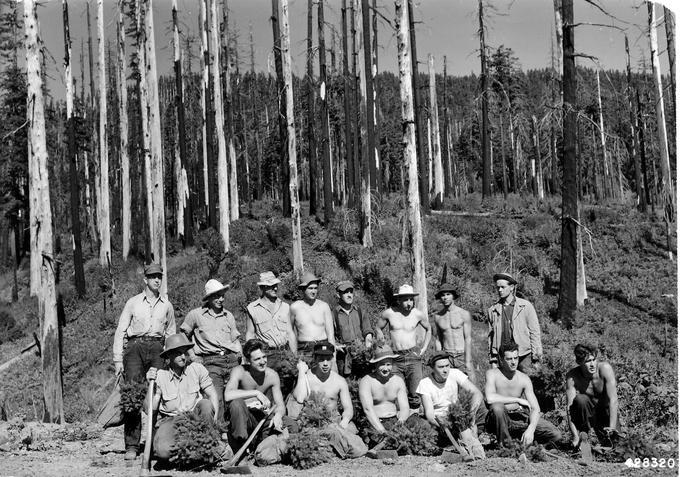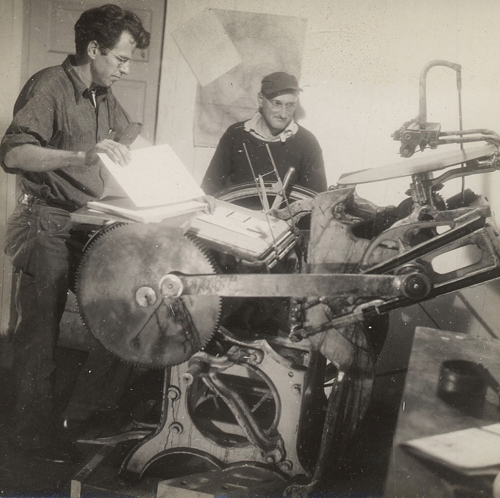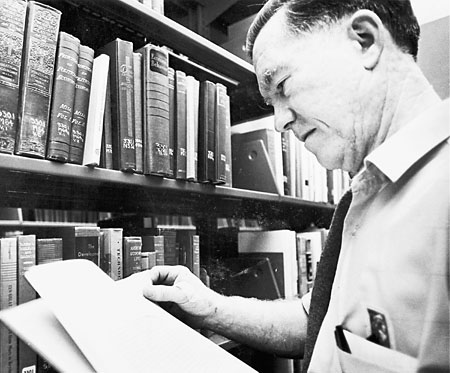William Oliver Everson, a prominent poet in the San Francisco Renaissance, was also a master printer, Dominican lay brother, literary scholar, riveting speaker, and dynamic teacher. During World War II, he spent several years in Waldport, Oregon, at a fine arts camp for conscientious objectors.
Everson was born in Sacramento, California, on September 10, 1912, and raised in the San Joaquin Valley town of Selma. His father, a Norwegian immigrant, was a commercial printer, bandmaster, and justice of the peace.
In 1934, Everson discovered the work of poet Robinson Jeffers (1887-1962), whose transcendental pantheism and vision of humankind gripped his imagination and changed his life. Two years later, Everson moved with his wife Edwa (née Poulson) to a ranch on the outskirts of Selma and began a career as a farmer/poet. World War II intervened, and Everson spent three years doing alternative service at Public Service Camp #56 in Waldport, also called Camp Angel, an experience his marriage did not survive.
Everson organized and directed the fine arts camp at Waldport, the only one of its kind during the war, which attracted musicians, painters, actors, and writers from other CO camps around the country. His career as a printer began at the camp, where he helped create the Untide Press, which published the literary magazine Illiterati and produced twelve beautifully designed books, including his own, The Waldport Poems and War Elegies. After the war, he moved to San Francisco, converted to Catholicism, and joined the Dominicans as Brother Antoninus. Along with many other Waldport artists and writers, he joined the San Francisco Renaissance of the late 1940s and 1950s.
In 1969, at a reading in Davis, California, Everson, now known as the Beat Friar, threw off his robes and left the order to marry Susanna Rickson. In 1971, he joined the faculty of the University of California at Santa Cruz as Poet in Residence. He developed Parkinson’s disease in the mid-1970s and retired in 1981, returning to the lecture circuit.
Everson’s poetry is noted for its spirituality, an erotic transcendentalism that often probed masculine/feminine archetypes, and for his investigation of humans’ struggle with aggression and war. Poet William Stafford described his language in The Achievement of Brother Antoninus as having a “rugged shock effect” and a “didactic moral tone.” Everson’s work has been compared with that of Jeffers and Gerard Manley Hopkins (1844-1889).
Though he published over fifty volumes of poetry, the major body of Everson’s work is collected in The Residual Years, Poems 1934-48; The Veritable Years, 1949-1966; and The Integral Years, Poems 1966-1994. He wrote extensively about Jeffers and western American literature, and he designed and printed some of the most prized letterpress editions in America.
Everson, who gave an unforgettable reading at the 1983 Portland Poetry Festival and received a special award from the Oregon Institute for Literary Arts in 1988, died at his home in Kingfisher Flat, north of Santa Cruz, California, in 1994.
-
![William Everson in his office, Civilian Public Service Camp #56]()
William Everson, c. 1942-1946.
William Everson in his office, Civilian Public Service Camp #56 Courtesy Oregon State University Libraries, 2010-0902, and Siuslaw National Forest
Related Entries
-
![Civilian Conservation Corps in Coos County]()
Civilian Conservation Corps in Coos County
From 1933 to 1942, Civilian Conservation Corps (CCC) enrollees in Coos …
-
![Civilian Public Service Camp #56]()
Civilian Public Service Camp #56
Civilian Public Service Camp #56, on the central Oregon Coast four mile…
-
![Untide Press]()
Untide Press
The Untide Press (1943-1951) was a small poetry press founded at Camp A…
-
![William Stafford (1914-1993)]()
William Stafford (1914-1993)
William Stafford, one of America’s most widely read poets, was born in …
Map This on the Oregon History WayFinder
The Oregon History Wayfinder is an interactive map that identifies significant places, people, and events in Oregon history.
Further Reading
Bartlett, Lee. William Everson: The Life of Brother Antoninus. New York: New Directions, 1988.
McQuiddy, Steve. Here on the Edge: How a small group of World War II conscientious objectors took art and peace from the margins to the mainstream. Corvallis: Oregon State University Press, 2013
Merchant, Paul, and Jeremy Skinner. Glen Coffield, William Everson, and Publishing at Waldport, Oregon. Portland, Ore.: Lewis and Clark Special Collections, 2003.



